There’s so much amazing literature being written right now from so many rich, wonderful perspectives, and I’m going to talk about a few of them right here. Five, to be exact, but if Tor.com had a regular feature called “Fifty Books About” or “Five Hundred Books About,” then trust me, we’d have no trouble coming up with a list.
For now, here are a few amazing titles everyone should be reading and talking about—and hopefully, we’ll get more great recommendations in the comments.
Diverse Energies edited by Tobias Buckell and Joe Monti
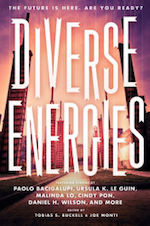 I encounter a lot of dystopian fiction that features preternaturally attractive white teens who gradually become aware of the evil underbelly of their seemingly perfect world. I get frustrated with this narrative, because there was a time in my life—with no health care and barely enough food to eat—when I would have done anything to live in one of these beautiful, not-that-awful worlds. So reading this anthology was a breath of fresh air. Fresh, gritty, despairing air. The dystopia has arrived, folks, and it’s grim as hell. Highly recommended.
I encounter a lot of dystopian fiction that features preternaturally attractive white teens who gradually become aware of the evil underbelly of their seemingly perfect world. I get frustrated with this narrative, because there was a time in my life—with no health care and barely enough food to eat—when I would have done anything to live in one of these beautiful, not-that-awful worlds. So reading this anthology was a breath of fresh air. Fresh, gritty, despairing air. The dystopia has arrived, folks, and it’s grim as hell. Highly recommended.
Summer of the Mariposas by Guadalupe Garcia McCall
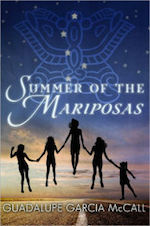 Summer of the Mariposas is a gorgeous retelling of The Odyssey from a Mexican-American perspective. I loved the relationships between the sisters, the food descriptions, the creepy monsters rooted in Mexican and Aztec mythology. McCall writes beautifully, and she brings to life a between-worlds culture that is experienced so often, but represented in literature too rarely. I loved this book, and I can’t wait to read it again with my nieces when they’re old enough.
Summer of the Mariposas is a gorgeous retelling of The Odyssey from a Mexican-American perspective. I loved the relationships between the sisters, the food descriptions, the creepy monsters rooted in Mexican and Aztec mythology. McCall writes beautifully, and she brings to life a between-worlds culture that is experienced so often, but represented in literature too rarely. I loved this book, and I can’t wait to read it again with my nieces when they’re old enough.
Warchild by Karin Lowachee
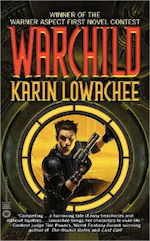 I read Warchild when I was an aspiring novelist. It filled me with admiration, with determination to write better, and maybe a little despair that I might never be as good as I wanted to be. This story of a human boy raised by aliens to be a warrior and spy is emotionally charged and filled with characters who spring off the page. The first forty pages are in second person, which I assure you is not gimmicky but, rather, is used to powerful effect. If you end up loving Warchild as much as I did, it’s followed by two sequels.
I read Warchild when I was an aspiring novelist. It filled me with admiration, with determination to write better, and maybe a little despair that I might never be as good as I wanted to be. This story of a human boy raised by aliens to be a warrior and spy is emotionally charged and filled with characters who spring off the page. The first forty pages are in second person, which I assure you is not gimmicky but, rather, is used to powerful effect. If you end up loving Warchild as much as I did, it’s followed by two sequels.
Ninefox Gambit by Yoon Ha Lee
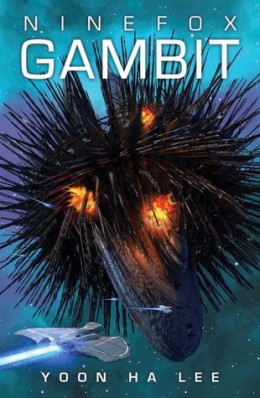 Ninefox Gambit, by debut novelist Yoon Ha Lee, is the most Starship Troopers-y book since Starship Troopers. We met when he and I were both guests of honor at Sirens Con. He read from this, which was forthcoming at the time, and I was hooked. It’s filled with wry humor, great ideas, and big action. And yet the prose is careful and dense, making you want to slow down and savor every sentence. Buy it, read it, and thank me later.
Ninefox Gambit, by debut novelist Yoon Ha Lee, is the most Starship Troopers-y book since Starship Troopers. We met when he and I were both guests of honor at Sirens Con. He read from this, which was forthcoming at the time, and I was hooked. It’s filled with wry humor, great ideas, and big action. And yet the prose is careful and dense, making you want to slow down and savor every sentence. Buy it, read it, and thank me later.
Infomocracy by Malka Older
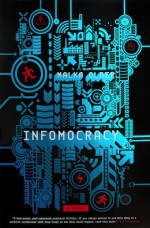 Sometimes, I want a book that’s fun. Sometimes, I want one that’s whip smart. Infomocracy, by Malka Older, is both. Last year, when I finished Neal Stephenson’s Seveneves, I had a big-idea-shaped hole in my heart that was not filled until I discovered this book. But comparing the two is a slight disservice to Infomocracy, which is a lot more cinematically paced, and is particularly pertinent during the current U.S. election cycle. I couldn’t put it down, and you won’t be able to, either.
Sometimes, I want a book that’s fun. Sometimes, I want one that’s whip smart. Infomocracy, by Malka Older, is both. Last year, when I finished Neal Stephenson’s Seveneves, I had a big-idea-shaped hole in my heart that was not filled until I discovered this book. But comparing the two is a slight disservice to Infomocracy, which is a lot more cinematically paced, and is particularly pertinent during the current U.S. election cycle. I couldn’t put it down, and you won’t be able to, either.
Rae Carson is the author of the New York Times–bestselling and National Book Award longlist title Walk on Earth a Stranger and the acclaimed Girl of Fire and Thorns series. Her books tend to contain adventure, magic, and smart girls who make (mostly) smart choices. Originally from California, Rae Carson now lives in Arizona with her husband.










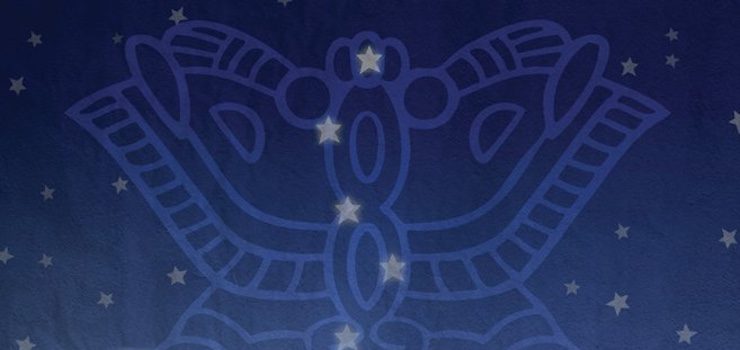
good books are good book no matter the perspective or who wrote them. In fact the personal life or background of the author should be irrelevant. It certainly should have no bearing on what does or doesn’t get published.
Also any update on the warbreaker reread? Was supposed to start this month I think. Thanks!
I agree with dwcole. Give me good science fiction literature. Who ever writes it is fine by me. Not everything has to become a source of hand-wringing. It’s enough that the gender, race, nationality wars etc. made their ways to the political sphere. Keep it out of the SF world. If it is a good read it will find its audience. (Boy am I ready for some knocks by the PC crowd).
“If it is a good read, it will find its audience.”
Yes, talent and quality of work are always recognised and rewarded, and circumstance plays no role at all.
Vincent Van Gogh, one of the most well known and acclaimed painters of all time, died alone in despair with his talent unrecognised and unremarked upon. If you really believe that simply doing something well is enough for it to achieve recognition, you are hopelessly naive.
You seldom encounter excellent books which don’t achieve success, it’s true.
Because they didn’t achieve success, so you didn’t hear about them.
This pervasive idea that talent and hard work are always, just naturally rewarded is on of the most asinine pieces of idiocy in modern thought. Luck counts.
Yes, circumstances count, which also means that sometimes artists are not recognized in their own time. Your van Gogh example is a perfect example BUT here’s the thing: He is definitely recognized today. Sometimes it takes time for the truly great to rise to the top (or at least find their audience). And maybe if we don’t hear from certain “artists” they weren’t good to begin with?
By the way thanks for indirectly calling me an idiot. It’s good to know that enlightened debating skills are still in vogue.
I might have believed the “What’s good will rise” line if I hadn’t found the online public domain. Dig a little and it won’t be that long before you’re asking “Why did I never see this one before?” There are good and interesting stories that have dropped clean out of sight, if they ever got much sight in the first place. Luck is most definitely at work. And yes, luck definitely includes little things like being male and white.
It seems very postmodern to me – this idea that the author, the author’s experiences, and the author’s background do not influence the finished work. Is it a variant of the “intentional fallacy” – the idea that authorial intent is irrelevant to the meaning of the work?
Because it seems rather likely to me that an author from a different culture or with different life experiences (due to race, country, ethnicity, occupation…) might write things that are not necessarily better, but different from those of other backgrounds. Hopefully noncontroversial examples: a veteran may write military science fiction from a different perspective. Someone who has some form of mental illness may write mental illness in a way that someone who hasn’t had it would not. (Or would only through careful research that would include reading the works of those who do have it.) Or they might write other things differently, experience of alienation or or despair or alien thought processes. Maybe someone with a Mexican background wouldn’t write the best Aztec mythology influenced book ever simply by reason of their background, but it might be a different one. Maybe even one others who hoped to write Aztec mythology influenced books would want to read, to get a feel for that perspective?
So I’m always puzzled when I see these comments on “diverse” lists, that one should only make lists that focus on quality, rather than the background of the author. I haven’t often seen anyone saying “why make a list of best books with unicorns? You should only focus on the quality of the work, not the unicorn content.”
But unicorn content is a quality of the book that interests people who like unicorns. And – forgive me postmoderns, and death of the author aside – perspective of the author is potentially a quality of the book. One that some people may be interested in seeking out, because reading something written by someone who has an insider’s perspective on a different worldview might simply interest them.
Of course, if that isn’t something that interests you, then you won’t find these these to be can’t-miss books. At least, not for that reason.
@6: An excellent point, and one I haven’t ever heard articulated in just that way before. I’ve a feeling I’ll be making that “best books with unicorns” comparison many times myself in future comment threads.
I feel like I need to note that “diversity” only appears to be in the title of this article with the implication – “here’s some stuff by a set of authors with diverse backgrounds, cool, huh?” – there’s no actual “should” of how things should be or anything like that. Oh perhaps there’s an implication that your background might give you a perspective on how and what you write (this is controversial?). Now I strongly do not mean to implicate how other commenters think here, but generally it does puzzle me that science fiction has strange aliens from other planets and ineffable energy creatures from the galactic hub, yet have a writer from another land mass on planet earth and it shakes things up – how is this not fascinating to you?